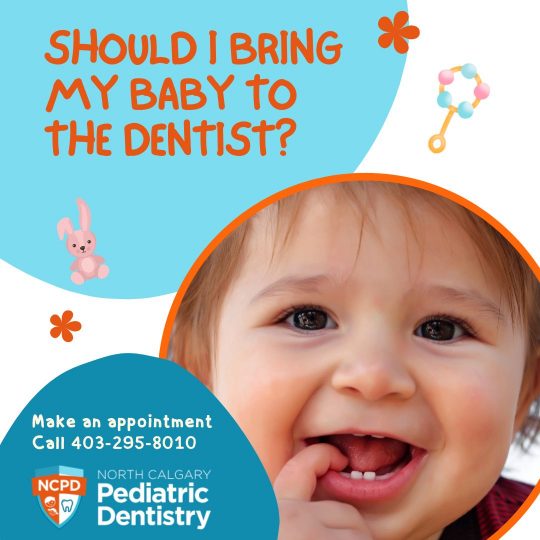CLOSE

Pediatric dentist Dr. Cameron Zealand at North Calgary Pediatric Dentistry:
"As a new parent, it's natural to have many questions and concerns about your baby's health and well-being, including their dental health. One question that many parents ask is whether they should bring their baby to the dentist and when is the best time to start. In this blog post, we will explore why it's important to take your baby to the dentist, when you should start, and what could happen if you don't prioritize regular dental care for your child."
PHONE
(403) 295 8010
HOURS
Mon to Fri: 7:00am to 3:00pm
Saturday: Closed
Sunday: Closed

© 2022 North Calgary Pediatric Dentistry - All Rights Reserved | SEO and Website by Jaw Drop Marketing
This site is machine-translated from English, and may have errors in translating the information from English to the language you have chosen. This translation service is provided to encourage communications between the reader and North Calgary Pediatric Dentistry and will not be perfect. There may be errors in the translation including missing or added words, or poor translation of a dental related term or concept. The best way to obtain complete information is to contact us directly. Your questions are welcome, please feel free to contact us. Services are provided in English.